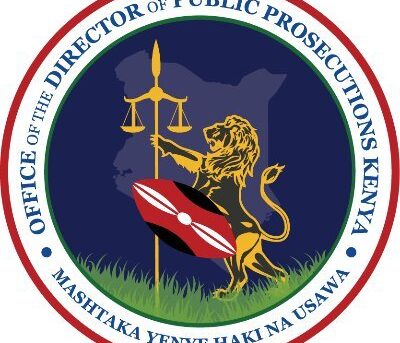The criminal justice system in many jurisdictions, including Kenya, involves a multifaceted process where decisions made by key authorities significantly impact the direction and outcomes of criminal proceedings.
The Office of the Director of Public Prosecutions (DPP) in Kenya holds a pivotal role in shaping the course of criminal cases, particularly concerning the decision to employ diversion as an alternative resolution.
This article explores the reasons why the DPP is entrusted with the authority to make decisions on diversion, highlighting the legal framework and principles that guide this essential aspect of the justice system.
Legal Empowerment through the ODPP Act 2013
The foundation of the DPP’s authority in making decisions on diversion lies in the legal framework provided by the Office of the Director of Public Prosecutions Act 2013.
This legislation empowers Public Prosecutors, who operate under the auspices of the DPP, to conduct criminal proceedings on behalf of the Government. In doing so, the DPP is granted the authority to formulate and review Public Prosecution Policy, including the specific policies related to diversion.
Independence and Non-Interference:
One of the key reasons the DPP is entrusted with decisions on diversion is the principle of independence. The ODPP Act mandates that prosecutorial powers must be exercised independently and without interference.
This independence is crucial to maintaining the integrity of the criminal justice system, ensuring that decisions are made based on legal considerations and the pursuit of justice rather than external pressures.
Formulating and Reviewing Public Prosecution Policy
The DPP’s role in formulating and reviewing Public Prosecution Policy, including the Diversion Policy, is significant. This involves a careful examination of legal principles, societal needs, and the overarching goals of the justice system.
The Diversion Policy, as part of this broader framework, reflects a commitment to exploring alternative resolutions to certain criminal cases, emphasizing rehabilitation and restorative justice.
Balancing Prosecutorial Powers with Fairness
The decision-making authority vested in the DPP serves a dual purpose. While the DPP is tasked with representing the Government in criminal proceedings, including the consideration of diversion, there is also an inherent responsibility to ensure fairness and justice.
The balancing act involves evaluating the merits of diversion on a case-by-case basis, taking into account factors such as the nature of the offense, the offender’s background, and the potential for rehabilitation.
Conclusion
The decision-making authority of the Director of Public Prosecutions regarding diversion is grounded in legal empowerment, as outlined in the Office of the Director of Public Prosecutions Act 2013. This authority reflects a commitment to an independent and impartial justice system, where decisions are made based on legal principles and the pursuit of justice.
By formulating and reviewing Public Prosecution Policy, including the Diversion Policy, the DPP plays a crucial role in shaping the trajectory of criminal cases, ensuring a balanced and fair approach to justice in the Kenyan legal landscape.




